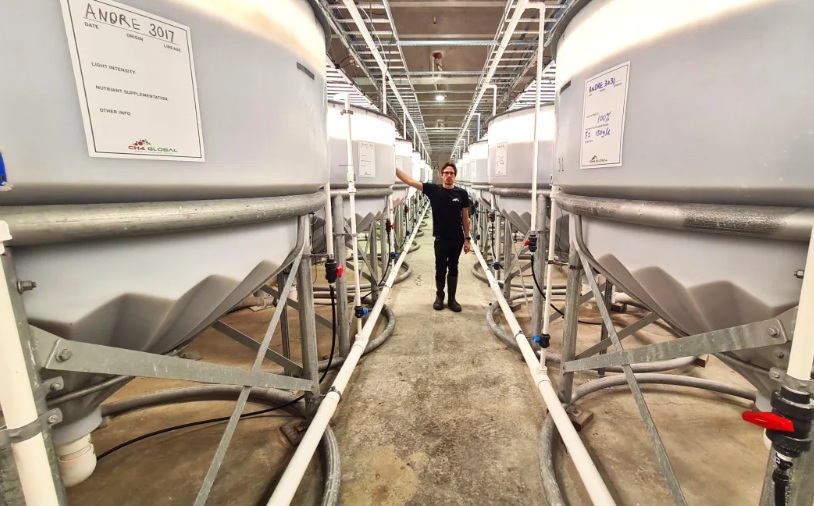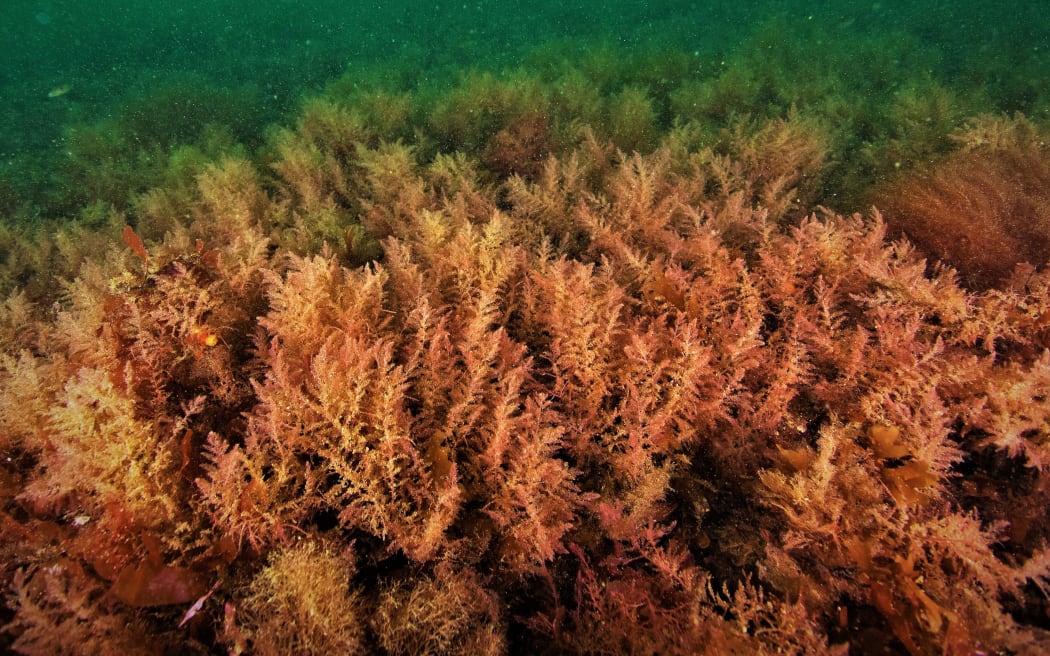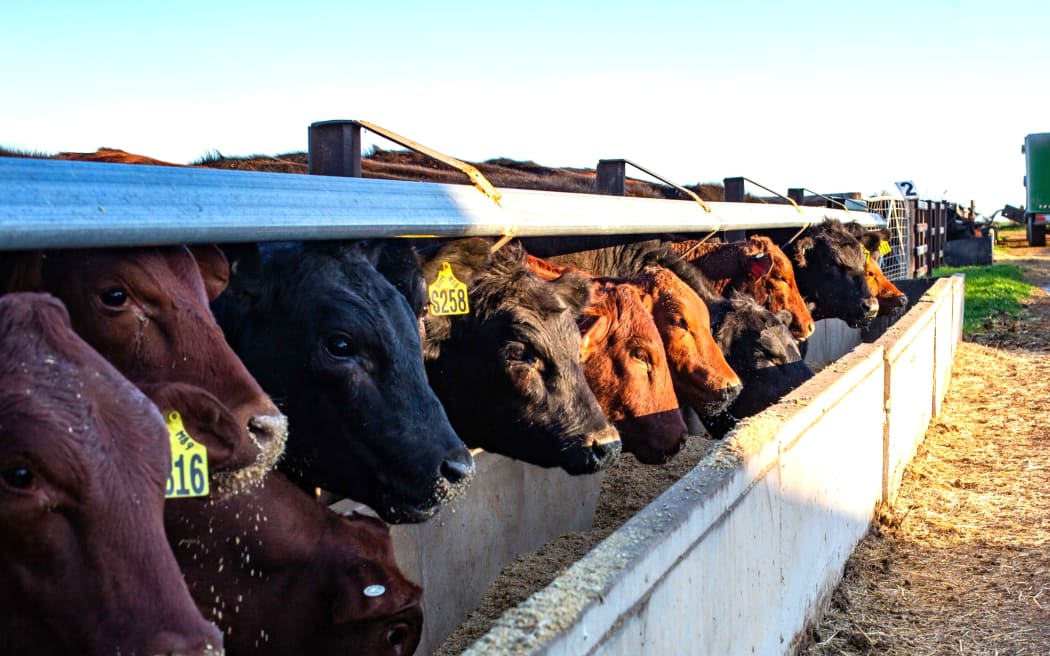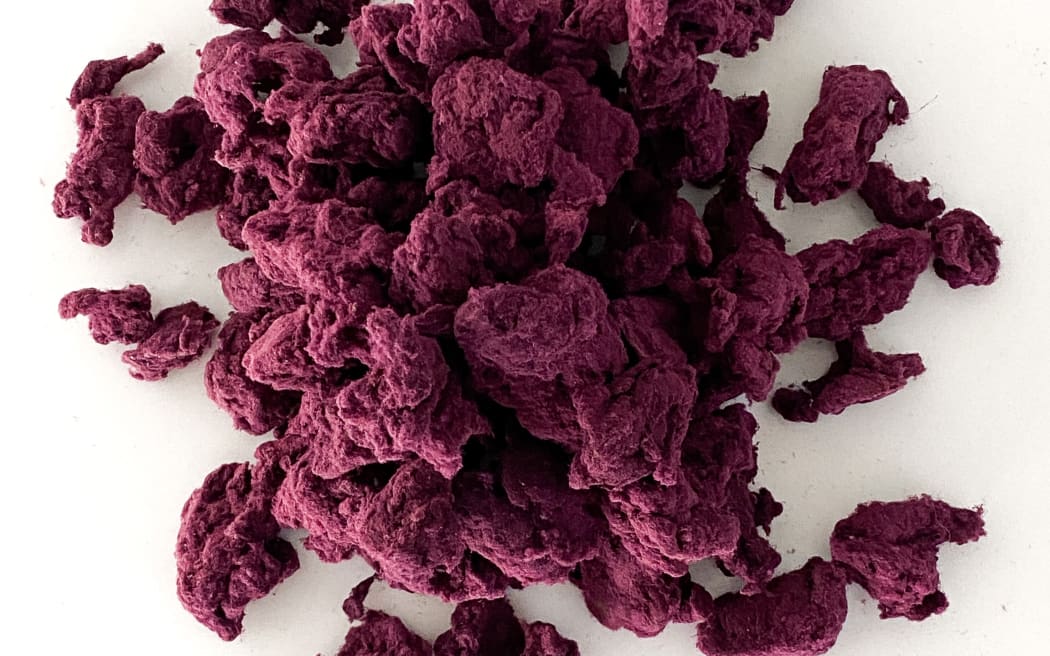
Red seaweed reduces methane emissions in beef and dairy cattle with no adverse effects, scientists say.
Whole Asparagopsis seaweed contains bromoform, an active ingredient which can act as an inhibitor for methane production.
"It can reduce the methane that cattle produce by up to 90 percent," production scientist at CH4 Global's seaweed growing facility at the Ocean Beach Aquaculture Hub, Brent Jackson, said.
The seaweed grew in dozens of huge aerated vessels at the site, the former home to the Bluff Freezing Works.
"Initially we started growing it offshore but with land-based farming, it's controlled conditions, easy to scale, consistent and reliable."

"They'll do some more formulation where they'll add molasses, which gives it a little bit of flavour and it helps retain the bromoform. They'll also blend and dilute it to get the bromoform concentration they want."
Jackson said cattle only required about 50 grams a day of the supplement.
He said it was also easy to use to, farmers just mixed the purple powder-like product in with the feed.
"At the moment it's targeted at feed lot cattle. The feeding regime of dairy cows is slightly different. So it'll be maybe one or two doses a day when they come in to milk."

"Inside the gut you have bacteria which convert fatty acids, or the by-products from the fatty acids into methane and this (supplement) inhibits that process, so that there's no methane produced," Jackson explained.
He said the methane inhibition process also reduced the amount of energy spent by the cow.
"Which is great for farmers, it means their cattle's feed efficiency goes up, they don't have to feed the cattle as much and they get less methane."
CH4 Global was already selling its Methane Tamer product to cattle farmers in Australia, but Jackson said in New Zealand there was a road block.

The seaweed would need to get re-classified as a supplement for cattle feed and until that happened, farmers wouldn't be able to access the natural methane-reducing product in New Zealand.
The Nevada-based company - founded in 2018 - was banking on this changing in the near future.
"We do have a lot of people in government who are really interested in getting this moving and getting it into the market here," Jackson said.

He said it was easier to forget how impactful the work could be.
"'When you think about the climate and how much methane is produced by cattle, even if you just give this to a fraction of the 1.5 billion cattle in the world, it's going to have a huge impact."
Learn more:
Find out more about CH4 Global here
https://www.mpi.govt.nz/dmsdocument/58012-Seaweed-farming-in-New-Zealand...















